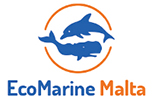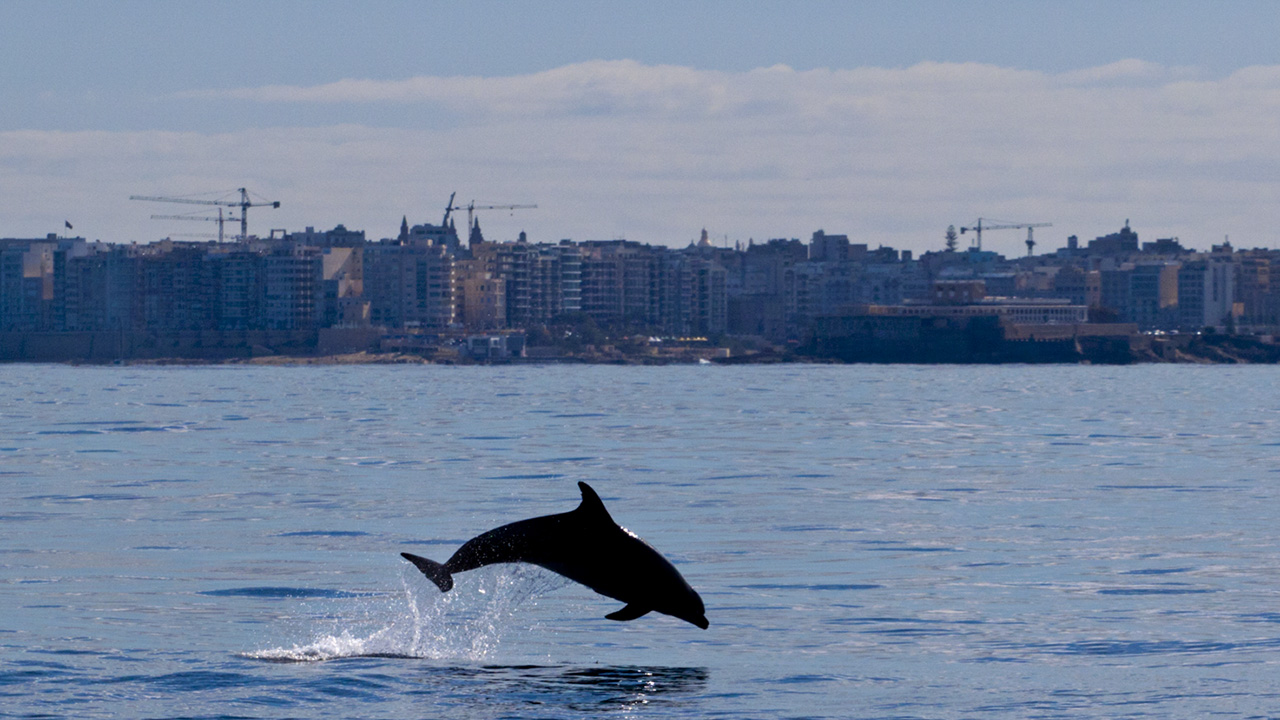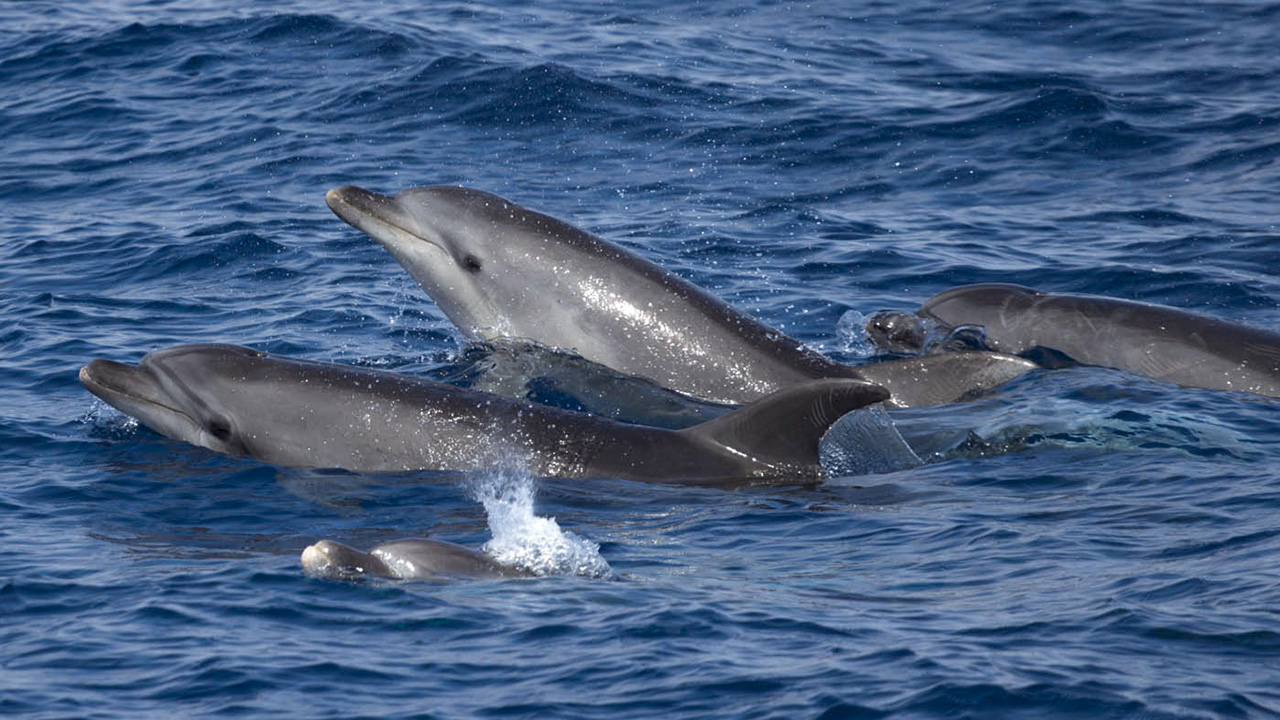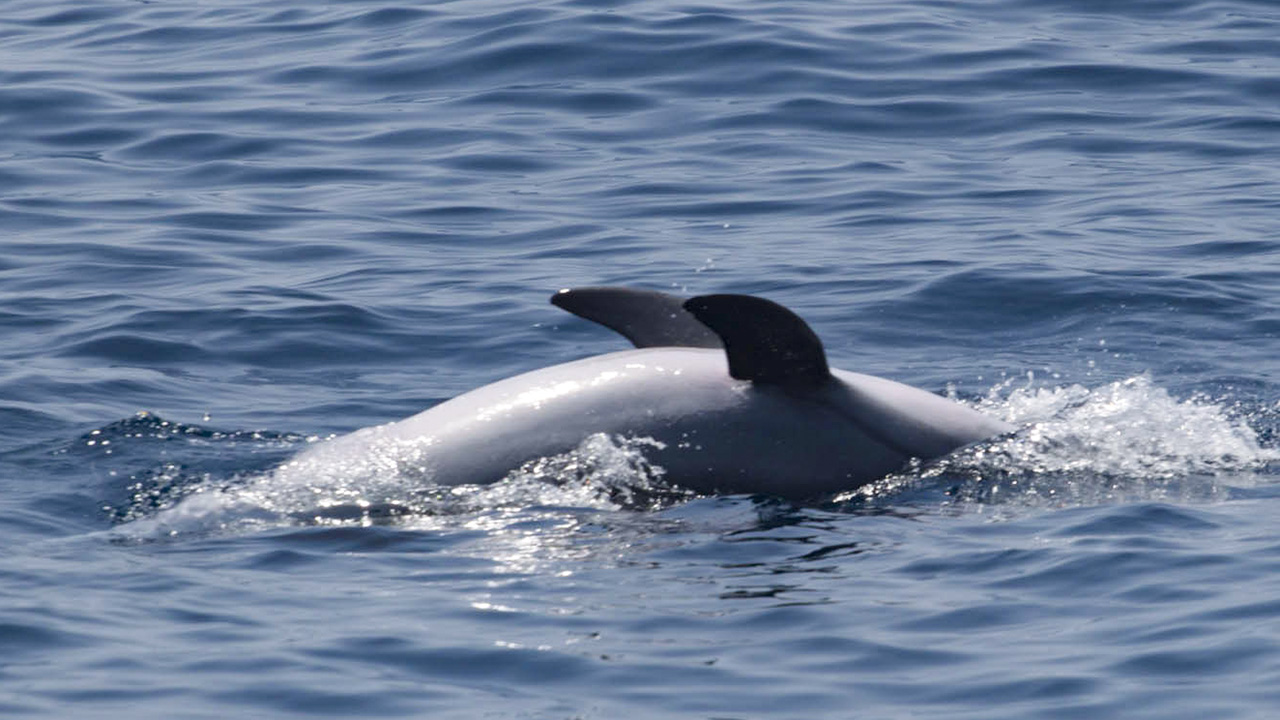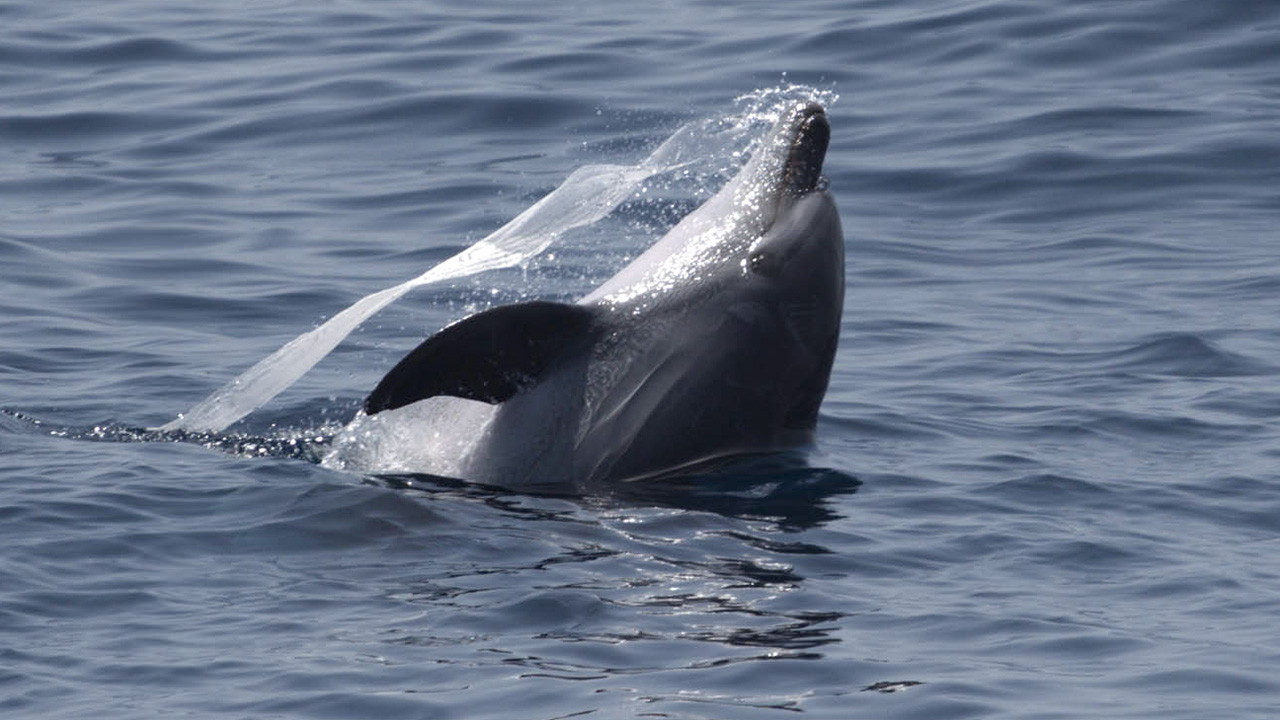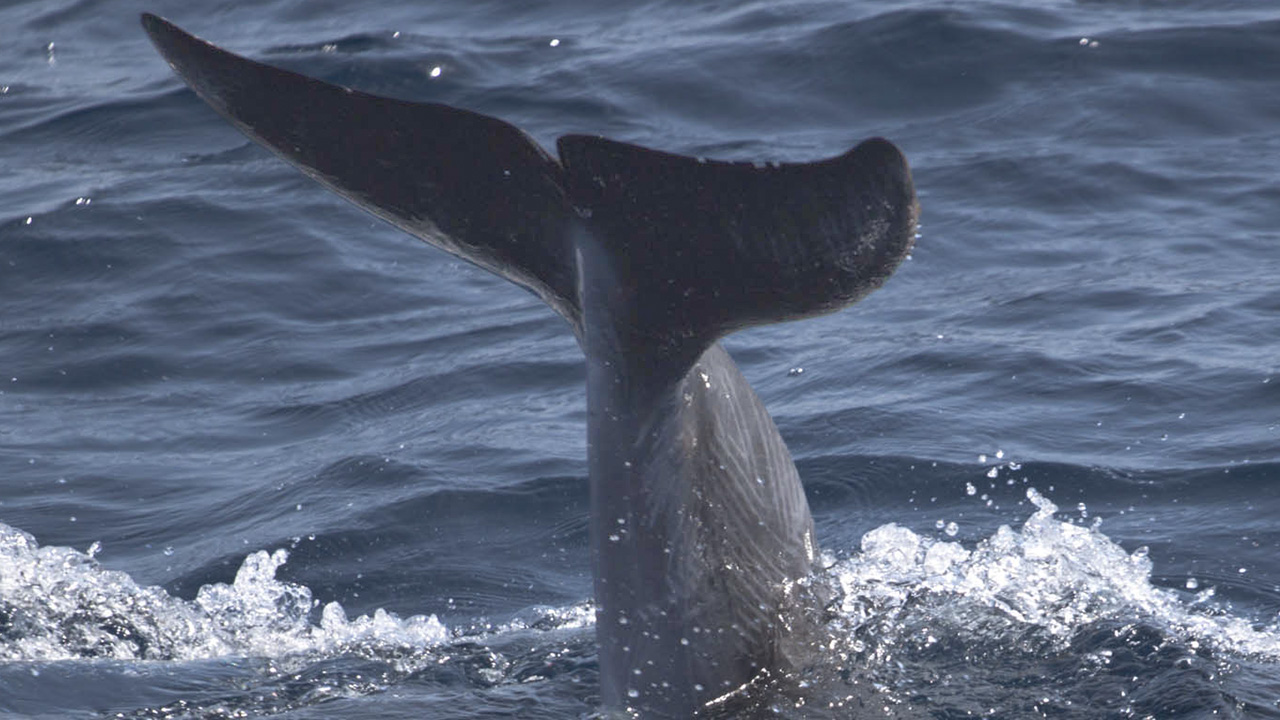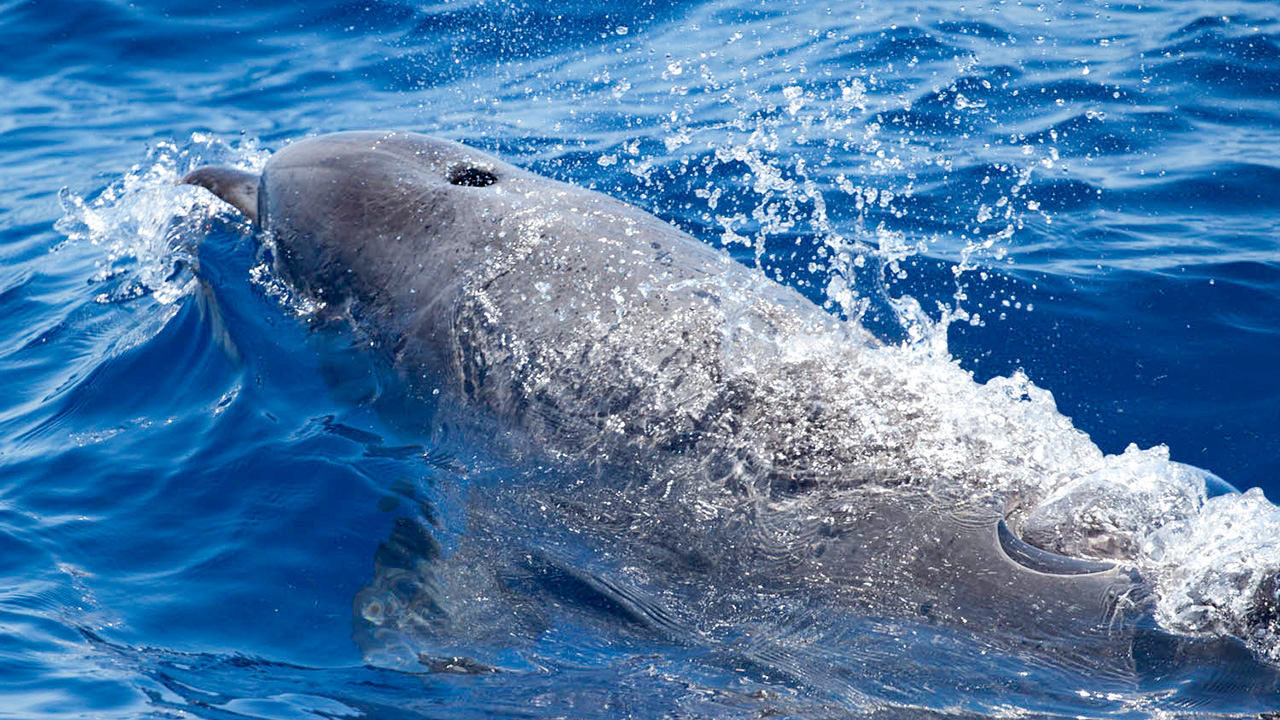Swim with dolphins, our idea
5 REASONS WE SHOULD NOT SWIM WITH DOLPHINS
No matter how tempting the advert looks, how “happy” the dolphin looks or how excited you are to jump in the pool or sea, science proves to us that it is not a good idea to swim with these wonderful and mysterious creatures. Our tours with EcoMarine Malta emphasise the fact that we do not swim with dolphins, but we learn to appreciate them from a safe distance to ensure their stress levels remain as low as possible. Here are our reasons why we keep that distance.
Dolphins are not smiling in the pool
Right on top of our list is a pool environment. We can’t think of enough reasons why these areas are completely terrible for dolphins and marine wildlife. Hint: it’s in the word: wildlife. A creature is meant to be free, roaming and thriving in our gloriously beautiful world. A bird should never be caged, a fish should never be tanked for entertainment. Oh, and that “smile” you see on a dolphin’s face on those adverts? Well, it’s simply the shape of their face, but we have attached a human emotion to wildlife, which is a very dangerous trait as we can never be sure of their emotions, so reading them is not a sure tactic. The entertainers take this as a huge advantage, and post pictures of dolphins grinning and looking satisfied when it is, in fact, a massive misconception.
Combining this with making them perform tricks for their crowds is simply unacceptable, as these tricks are learnt in a very cheeky way. Trainers withhold food from the creatures, and in some cases violence is also turned to, to ensure the dolphin behaves in the desired way.
Dolphins are long-distance swimmers
These creatures are literally athletes and swim an average of 40 miles per day, how about that for a daily jog? When doing so they are constantly training and using their mind in many different ways. Adults train the younger dolphins in their societies to hunt, and calves learn through playing. A dolphin’s mind is so complex we have seen examples of them inventing their own games, playing with shells and other debris found in the sea.
Dolphins not only love to swim long distances, but they also love the deep and often hit depths of 300m on hunts. Compare that to a 10m deep pool and you can soon see why we are against captivity altogether.
Think safety
Dolphins are wild creatures, whose behaviour can be totally unpredictable. When people swim with them it is impossible to tell how the creature will react. The activity not only puts the dolphin in danger due to stress levels, but also puts the swimmer in danger. This reason is true both in a pool environment and even when swimming in the wild. A dolphin will react badly if they feel their calf is under any form of stress, and this can be harmful to everyone involved, the calf itself and the human swimmer.
Whenever we want to imagine what this feels like, just picture yourself walking along the promenade with your child, when suddenly a human much larger than the child approaches for no reason. Our tendency is to get defensive, and a dolphin will also do the same.
Decreasing fear from humans
Repetitive interactions with humans can lead to a pod decreasing the fear of human interaction, and this can be deadly. Humans are apex predators of the world and we can literally do anything. If all animals become numb to our existence, we have no doubt that the species will fail to thrive anymore as humans often take advantage of animals in such terrible ways. If, for example, elephants interacted with us, how many of them will still have tusks by the end of the year?
We need our wildlife to remain wild, we need them to fear us so that we don’t cause more damage to their lifestyles.
We don’t know their state of mind
When we see dolphins in the wild it is hard to tell what state of mind they are in. Are they resting, hunting, playing or learning? By disrupting them we might spoil a hunt, ruin an important lesson or prevent them from resting. Dolphins are incredibly complex and we must respect the fact that they interact within their societies. Less distractions are best for them to thrive and for the calves to keep on growing and developing the necessary skills to survive and carry the pod forward.
At EcoMarine Malta we are privileged to be able to view these creatures at a distance we feel is safe and causes no harm or stress to them. This way you can see them react purely in their environment, with no harmful stimulus. You can see them play, hunt and swim, and that is more than we should ever ask of such skilled creatures.
